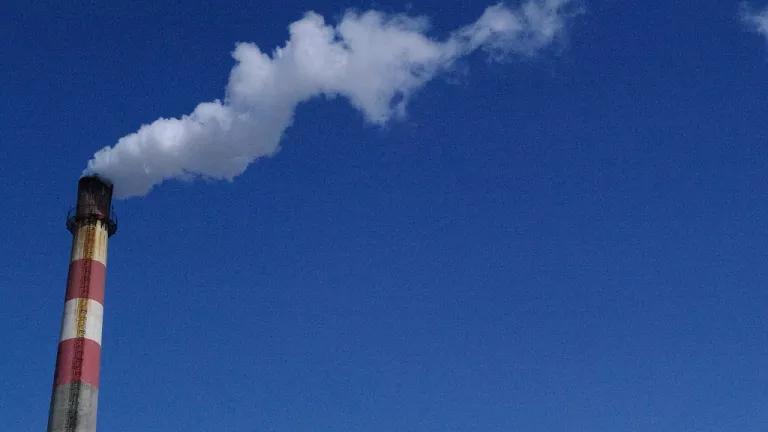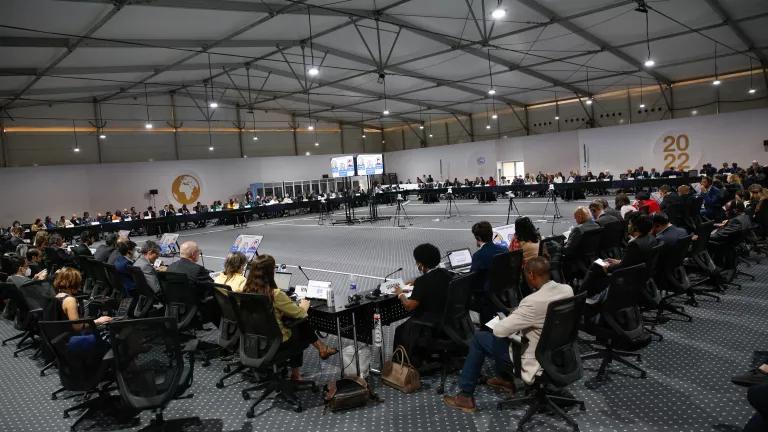
August 3rd, 2015: the remarkable day the U.S. Environmental Protection Agency finalized its Clean Power Plan and moved us all toward a healthier, more secure future. The first-ever limits on heat-trapping carbon pollution from America's power plants—an idea that will change the world.
Climate change threatens health here and now, right in our backyards. Hundreds of studies have already connected the dots between climate change and health. Climate change is fueling more intense, more frequent heat waves and they spell trouble for anyone who gets migraines (like yours truly), or who gets kidney stones (like my family does), or if you're one of the more than 25 million Americans with asthma. Hotter days mean higher concentrations of air pollutants, like ground-level ozone smog, which can trigger asthma attacks, harm lungs permanently, and shorten lives. Is there anyone in America today who doesn't know someone affected by asthma? Every labored breath diminishes the quality of their daily life, and unhealthy air pollution days often limit these folks' ability to work, to be active with friends, or go outdoors. Asthma attacks can be terrifying, put people in the hospital, and even prove fatal.
We're finding out about what climate change looks like because we're already feeling its effects. Many of us learn more now about climate change from our own experience than from books or reports. Sixty-one percent of physicians surveyed by the National Medical Association say their own patients' health has been affected by climate change; 86 percent said the health of their city or county has been harmed.
I'm getting older (I don't imagine you are, too). By 2030, there will be 72 million Americans age 65 and older—and I'll be one of them. We'll be among the nation's most climate-vulnerable people, along with children, and people already sick with heart, lung or kidney ailments. Households living in poverty, communities of color, and people who work outdoors are also at greater risk from climate change's effects.
When you consider that the health-harming effects of air pollution and carbon pollution from coal already cost us billions of dollars and thousands of lost lives each year, it's clear that burning fossil fuels like coal is like...waging a war on health.
I'm selfish. I want to be happier and healthier, right now. This is the great thing about putting limits on carbon pollution: The EPA's plan will make my air and my health better today, at the same time as it trims heat-trapping pollution and limits the worst effects of climate change. That's because burning fossil fuels kicks both kinds of pollutants into the air.
Cutting dangerous carbon pollution 32 percent by 2030, the goal the EPA has laid out, could prevent up to 3,600 premature deaths, 1,700 non-fatal heart attacks, 90,000 asthma attacks in children and 300,000 missed days of work and school. That's what I mean about a Big Deal for our health.
Rest assured, the plan is going to catch some heat from some people with a vested interest in maintaining the energy status quo.
But if it already feels like 165°F in some of the world's cities, what might our children have to cope with by 2050? I'm psyched about the Clean Power Plan because it's a plan to take positive action on climate change, in ways that will protect health, create jobs, and make for a more secure future for people everywhere.
It's up to us to support the EPA at this breakthrough moment, and move to limit climate change's worst effects. It remains up to us to decide to truly connect ourselves with that last dot: the future our kids will inherit. We owe it to them to act today.



